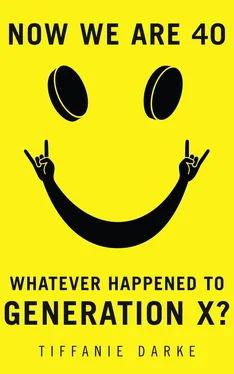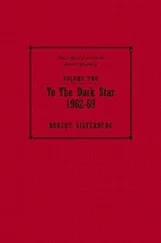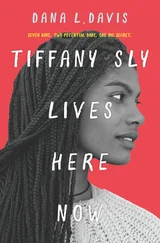It was to be some time before the scales were to fall from our eyes. As Private Eye had it so perfectly, Tony Blair was our saviour. Working on a national newspaper, I was not only party to all the cultural changes happening around me, but was on the inside track of the political ones too. I felt like I was living right in the middle of it – and physically I was. I had moved in with a boyfriend (TV producer for one of the myriad new satellite channels) who lived in Primrose Hill, not far from Islington and the street where Blair lived up till the election. I used to visit one of my writers who lived near the Blairs’ old home, and pass the door Cherie Blair famously answered in her nightie on the morning of the election.
Creation Records opened their HQ in Primrose Hill village, and for a while the genteel street that was then lined with greengrocers, tearooms and bookshops also housed pop stars, paparazzi and music industry types. The ancient bohemian ladies of Primrose Hill, who dined at Odette’s in their hatpins, beehives and endless necklaces, were rather a pleasing backdrop to the northern swagger of the Britpop scene. Everything, it seemed, was being overrun by the noisy clash of modernity.
Round the corner was The Steele’s, a pub where Kate Moss and Bobby Gillespie of Primal Scream would drink; The Queen’s played host to Chris Evans and Oasis; David Baddiel, Rob Newman, Sadie Frost and David Walliams all lived nearby and would pass in the street. It felt as if I had landed in the heart of everything, that I was part of this new world. By now I had moved on from the Telegraph to the Express features desk, where we could be reactive to the news unfolding around us. Racism in the police, the care of the elderly, the shenanigans at Westminster were all fair cop, although my finest hour was probably ‘Too posh to push’ – the truth behind Victoria Beckham’s caesarean.
I definitely gravitated towards the more fluffy side of news: my boyfriend at the time was producing a TV series with the comedian Leigh Francis (who now portrays the comedian Keith Lemon), and a pilot on video gaming with Dexter Fletcher. I was literally living next door to Liam ’n’ Patsy and I think I was rather blinded by the glitz and the excitement. While tabloid culture is a clever mix of both hard and soft news, it wasn’t clear to me at the time how we were shaping the future. How Saviour Blair was, or was not, paying it forward. How distracting and eventually corrosive celebrity culture would become. How Blair’s ‘New Deal’ – a cornerstone of his welfare reform in his first term, which withdrew benefits from those ‘who refused reasonable employment’ in exchange for training and subsidised employment, and the introduction of tuition fees that withdrew free arts education, stifling social mobility – was to have such far-reaching consequences for talent and creative culture.
The recent death of the actor Alan Rickman brought this into sharp focus: could a comprehensive boy who had grown up in a council house make it to the summit of the acting profession now? Twenty-five years ago, if you had no money you could live in a squat and draw dole to fund your rehearsal time, and you could beg, borrow or steal cheap studio space.
‘We rented a whole floor of an old disused mill for band practice back in Derby,’ says Jamie East. ‘It cost us £40 a month that we made back by sub-letting it out to other bands.’ These days ‘disused studio space’ has been turned into loft-style apartments. Bands can afford no such luxury, but it was a luxury afforded to Generation X talent: the YBAs, Kaiser Chiefs, Oasis, Jarvis Cocker et al. Where are the Alan Rickmans of today? Is it any wonder Eddie Redmayne, Dominic West, Tom Hiddleston and Damian Lewis all went to Eton?
Or that the best pop can offer is a new hierarchy of talent decided by shows like The X Factor ?
5
With greater transparency comes greater accountability. As the media exploded, and the traditional respect for privacy and restrictions around reporting on authority began to melt, power fell victim to the truth. Celebrities, once revered beasts of glamour, found themselves exposed as the humans they actually were. Tom Cruise was a cult Scientologist, David Beckham was a suspected adulterer, Jude Law was a wife-swapper, Jennifer Aniston’s marriage was on the rocks. But it wasn’t just the A-listers who were morphing into tragic soap stars in front of our eyes – it was the highest levels of government and those who had once been utterly untouchable, the Royals.
The Monica Lewinsky affair in the States seems incredible even now in the excruciating level of its detail. It was perhaps the last deliberately careless act of an American presidency that relied on secrecy. Back in 1998 Bill Clinton underestimated the growing power of the internet, the scrutiny of an ever more powerful press, the advance of technology in collecting DNA evidence. It was also the moment popular culture took on politics. Clinton’s affair struck at just the moment when technology, science, the press and popular culture came together.
Rumours of the Lewinsky affair first surfaced on the Drudge Report, at that time a fairly insignificant politics blog. Picked up by the Washington Post , it was enough for Clinton to utter the eleven words that were later to bring him down: ‘I did not have sexual relations with that woman, Miss Lewinsky.’ An investigation was set up on the popular satirical sketch show Saturday Night Live . The internet hummed with rumour and speculation. The presidency of the United States was now reduced to a conversation around blowjobs and cigar dildos. And then investigators found DNA evidence on a blue dress. There was to be no cover-up this time. An independent investigator was appointed to ascertain whether the president had lied. Eleven months and acres of media coverage later, both parties were left shamed and broken.
Over here in the UK, we had already witnessed the unravelling of Charles and Diana’s marriage in similarly glorious detail. Charles found himself the victim of a leak of phone tapes, caught red-handed talking to his mistress and expressing a naïve (aristocratic? who knows!) desire to be her tampon. Pretty hard to command future kingly respect following that one. Diana played her hand as the wronged siren, finding lovers in surgical operating theatres and on yachts with the sons of Middle Eastern billionaires, turning up at openings in drop-dead gorgeous designer gear. Charles sought to rescue his credibility with TV confessionals but he was no match for his wife, who was much more in tune with the times.
It was the endgame, as we now know, and as the final acts of both events played out to a watching world, they ended in spectacular tragedy: impeachment for the president and the self-proclaimed prophecy of death for Diana. Diana’s ride around the Med on Dodi Fayed’s gin palaces ended in horror as the paparazzi chased her to her death on a midnight flit from the Ritz in Paris. The gradual erosion of authority that had kicked off the decade had ended it with shame for the British Royal Family and the American political establishment. Nobody believed anything any more about our inherited structures. The old ways were broken. But what did that leave us?
‘We are the first generation for whom the level of media scrutiny has made it impossible for anyone to make a move into political life,’ says Kris Thykier. ‘Until the election of Donald Trump last year, we have only had people in government who have been in politics all their lives – because unless you’re in politics all your life, you haven’t run a life that will allow you to be in politics. It may have been possible in the Sixties and Seventies, even the Eighties. But it stopped being possible in the Nineties.’ The life of JFK was no less colourful than Clinton’s – but that was no impediment, far from it. ‘When Clinton came to power in 1993, the “I didn’t inhale” line was a fudge, an indication of what was to come.’
Читать дальше












